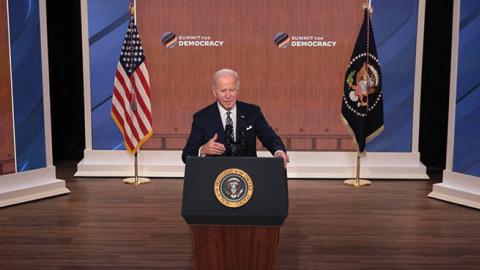Kleptocracy deprives the developing world of trillions of dollars each year, fueling poverty and conflict while entrenching powerful regimes in China, Russia, Iran and Venezuela. From the failure in Afghanistan to the unopposed expansion of Beijing’s Belt and Road Initiative, corruption plays a pervasive role in undermining U.S. foreign policy and national security.
The Biden administration last week released a new anticorruption strategy and highlighted the issue as a pillar of the U.S.-led Summit for Democracy. The strategy contains dozens of initiatives, including reforms such as broadening anti-money-laundering regulations beyond the banking industry and criminalizing bribes of American companies by foreign officials.
Conservatives might raise an eyebrow at some proposals in Mr. Biden’s strategy and in the Enablers Act before Congress, which would increase regulation of some U.S. professions, including investment managers and real-estate agents. But Mr. Biden’s new strategy is less a progressive agenda in disguise than a compendium of existing congressional initiatives with bipartisan support. The proposal could provide a future Republican administration with tools to get tougher on kleptocrats. Moreover, surrendering the corruption fight to progressives would be a gift to the kleptocrats in Beijing, Moscow, Tehran and Caracas, not to mention the terrorist groups and drug cartels whose illicit activities rely on co-opting corrupt officials and exploiting opaque financial networks.
Read the full article in the Wall Street Journal



















